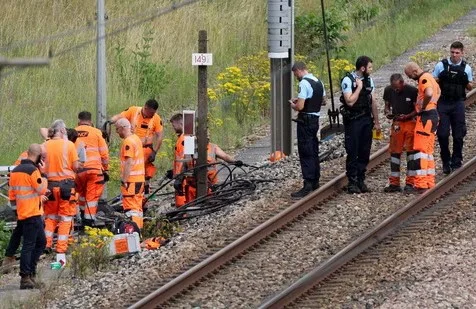France is still experiencing travel disruptions following an attack on high-speed railway lines coinciding with the Olympics. The responsible party remains unknown as investigations continue. Outgoing Prime Minister Gabriel Attal described the attack as “coordinated” and emphasized the involvement of intelligence and security forces in the inquiry.
Interior Minister Gerald Darmanin expressed confidence in quickly identifying the culprits, noting the recovery of evidence. While no group has claimed responsibility, the timing and precision suggest a deliberate act rather than random vandalism. The high-profile event of the Olympics opening day may have made it an attractive target for those seeking chaos. Authorities are working diligently to determine the perpetrators behind the sabotage.
Here’s what we know.
Extensive knowledge of railways
High-speed trains in France were disrupted on Friday due to a series of targeted attacks on key rail routes, impacting connections in the southwest, north, and east regions. The attackers displayed a high level of knowledge about the rail network, suggesting potential industrial espionage. Axel Persson of the CGT rail union noted that suspects could include railway staff or construction workers.
Despite the disruptions, employees had a contingency plan in place to reroute passengers and minimize delays. SNCF CEO Jean-Pierre Farandou mentioned that security cables were tampered with, emphasizing that the culprits remain unidentified. While France faced disruptions, the situation did not lead to a complete paralysis of the rail system.

